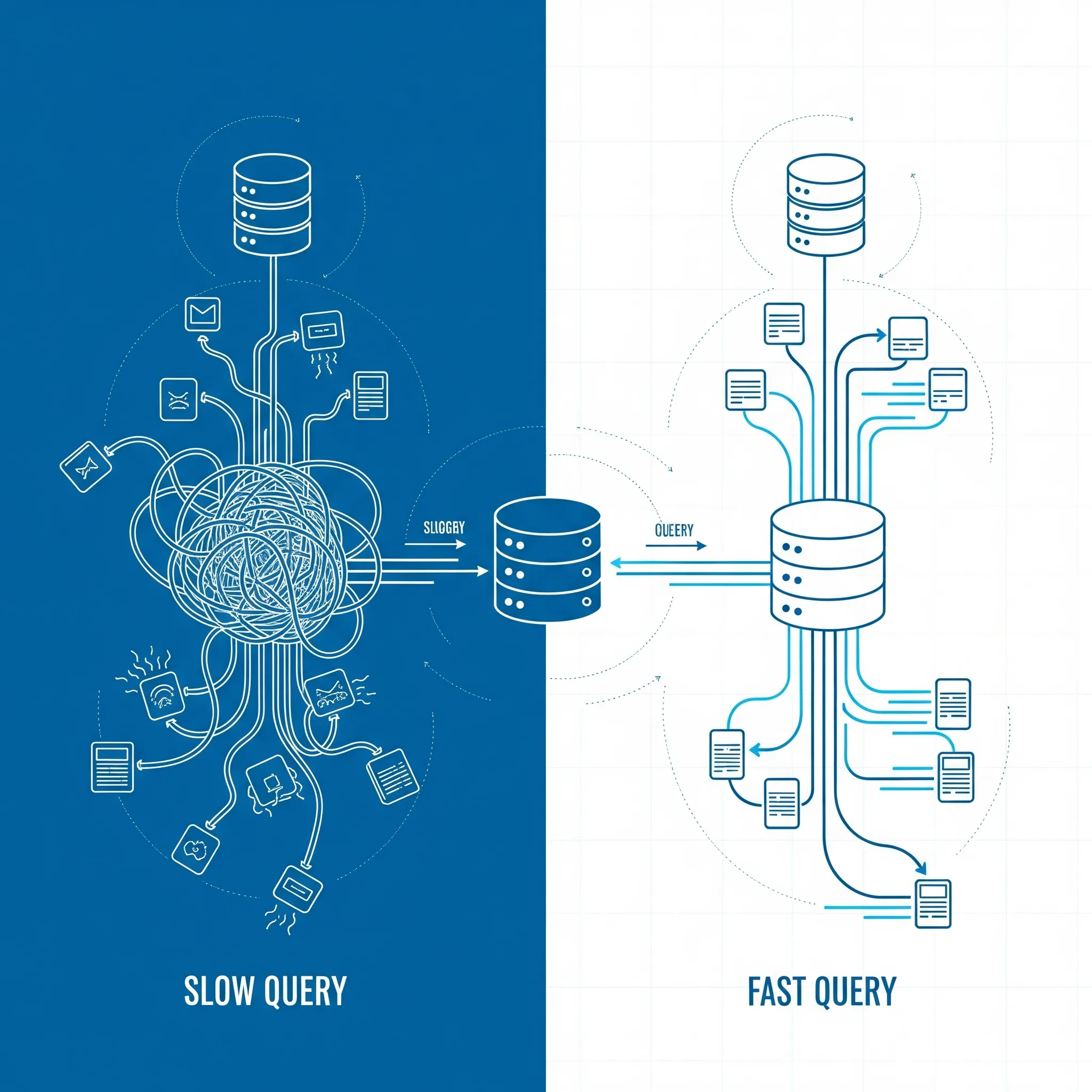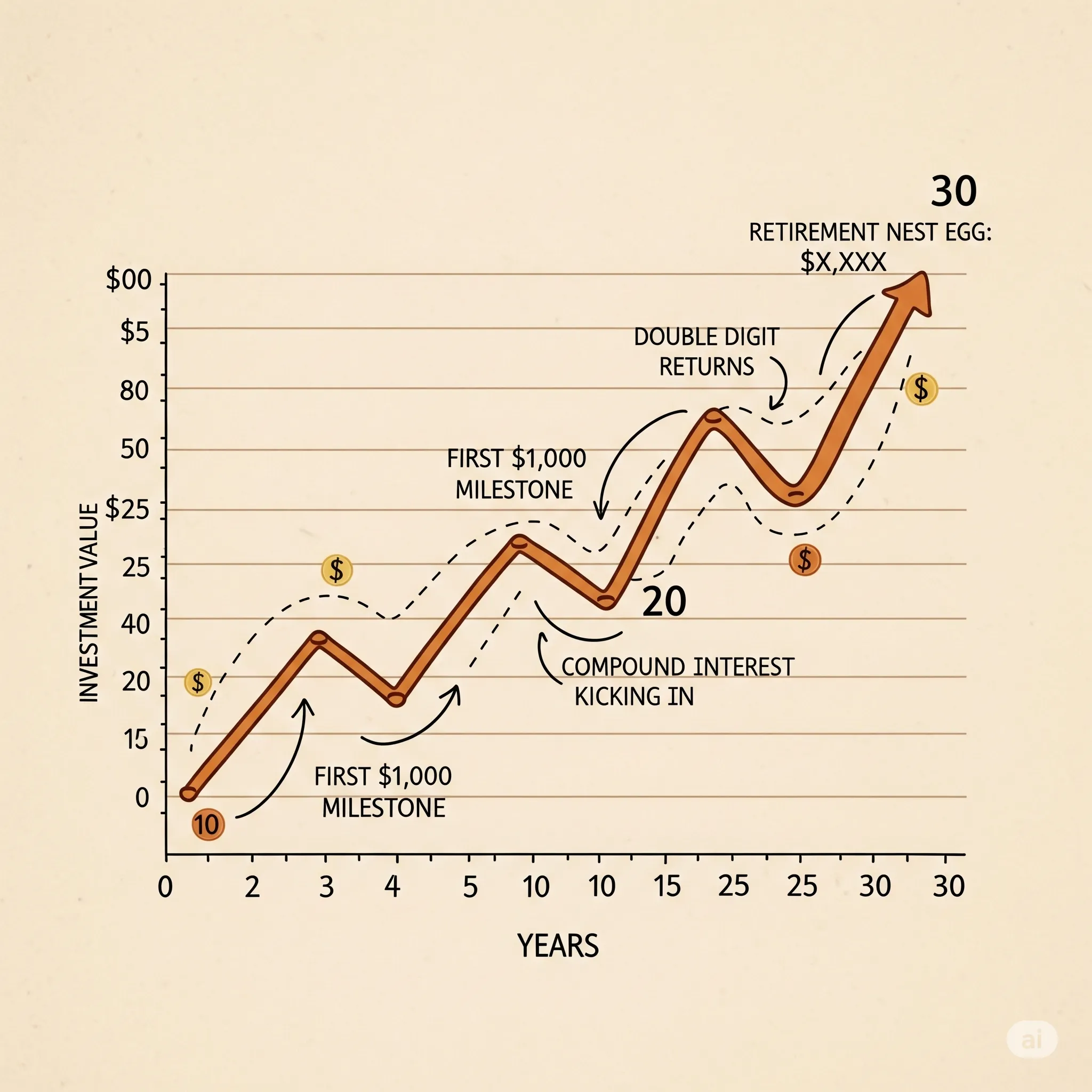It often starts with something small. A console.log() stuck inside a loop. A modest coffee purchase made every weekday. These choices seem trivial in the moment, easy to overlook and easy to justify.
But over time, they add up.
The compound effect is the idea that consistent, incremental actions—whether positive or negative—can accumulate into significant results. It is a principle we most often associate with money, but it applies just as clearly to coding and professional habits. The smallest adjustments in either realm can ripple outward into surprising gains or losses.
This is not about sudden breakthroughs or complicated algorithms. It is about clarity, habits, and how paying attention to the little things can build powerful momentum.

The Silent Power of Micro-Optimization in Code
If you have ever written code, you have probably heard the advice: do not prematurely optimize. This is sound counsel; wasting hours on tiny speed tweaks can be counterproductive. But there is a difference between premature optimization and mindful micro-optimization. Small improvements made consistently can compound over time.
For example, consider the difference between an unindexed database query and one properly indexed. The first might work fine during testing, but as data scales, that query could slow down your entire system and frustrate users. Fixing it early saves hours of debugging and server costs later.

Google engineers once shared how switching from XML to protocol buffers reduced data size by more than 60 percent, dramatically improving performance at scale [1]. This small decision made a big difference because it was applied systematically.
Beyond performance, micro-optimizations also include workflow habits. Writing clear commit messages, regularly refactoring confusing code, or establishing meaningful code review practices might not change results immediately. However, these habits reduce “cognitive debt” and save time in the long run. They compound productivity.
If you are a solo developer or working in a small team, it is worth asking what minor inefficiencies or “invisible debts” in your workflow might be quietly draining time or energy.
What Is Worth Compounding? Choosing High-Leverage Actions
Not every small change is equal. Some habits or optimizations create compounding growth, while others barely move the needle. The key is identifying what is “high-leverage,” meaning those adjustments that multiply benefits over time.
In coding, this might mean:
-
Writing modular, reusable functions instead of copy-pasting code.
-
Regularly updating dependencies to avoid security risks.
-
Automating tests to catch bugs early and avoid costly fixes.
In personal finance, high-leverage actions include:
-
Gradually increasing your savings rate by even 1 percent per year.
-
Automating bill payments to avoid late fees and improve credit.
-
Reducing small recurring expenses like unused subscriptions.
The key is consistency over intensity. It is better to automate or commit to a small improvement that you can maintain indefinitely than to attempt drastic changes that fizzle out.
When a Dollar Becomes a Thousand: Understanding Financial Compounding
The compound effect is more familiar in finance but often underappreciated, especially by those just starting out.
If you invest $50 a month at a 7 percent annual return starting at age 25, by age 55, your investment could grow to over $60,000 [2]. Double the monthly contribution to $100, and you could see $120,000. This is not magic; it is time and consistency doing the heavy lifting.

But the real insight is this: the earlier you start, the more powerful compounding becomes. The first $1,000 invested matters more than the next $10,000 because it has more time to grow.
If you worry about not having enough to begin investing, this is important to remember. Starting small—even with pocket change—is better than waiting for a big lump sum.
Negative Compounding: The Quiet Backslide
Compounding is not always positive. Just as small good habits accumulate into progress, overlooked problems quietly grow.
In code, “technical debt” builds when quick fixes or hacks pile up without proper review. The cost of fixing these problems grows exponentially as the codebase becomes more complex.
In finances, this can be seen in unnoticed monthly fees, recurring subscriptions, or delayed loan payments. For example, deferring student loan payments for “just one year” can result in thousands of dollars in extra interest. These are examples of negative compounding, where small neglect or poor choices multiply over time.
Recognizing the silent accumulation of debt—both financial and technical—is crucial to keeping your systems healthy.
Automation: How to Compound Without Losing Control
Many people hesitate to automate finances or code processes because they fear losing control. However, automation, when implemented mindfully, can act like “feature flags” in software. These tools automate routine work while allowing for monitoring and manual override.
In finance, automated transfers to savings or investments remove the decision fatigue that often leads to skipping contributions. Budgeting apps with alerts and dashboards provide transparency while handling the routine.

Similarly, in development, continuous integration pipelines automate tests and deployments but still provide logs and feedback for human review.
The trick is to sandbox automation: start small, monitor closely, and adjust as needed.
Visualizing Progress: Feedback Loops That Keep You Motivated
One challenge with compounding is that results are often invisible at first, which can sap motivation. This is where tracking and visualization become powerful.
Many developers rely on GitHub contribution graphs as feedback for consistency. Similarly, financial dashboards or tools like my financial planner help you visualize how small savings increments can grow into substantial wealth over years.
Even journaling daily progress on code reviews or personal spending can create a feedback loop that reinforces positive habits. Seeing progress, no matter how small, feeds motivation and makes the effort feel worthwhile.
Applying Compound Thinking Beyond Code and Money
The compound effect extends naturally into other domains of life such as learning new skills, building relationships, or managing time.
For example, setting aside just 15 minutes a day to learn a new programming concept can yield deep expertise over years. Or choosing to have a short, meaningful conversation daily strengthens social bonds exponentially.
Viewing time, money, and effort as systems with inputs and outputs encourages a mindset of thoughtful iteration. It is not about perfection, but gradual, purposeful progress.
Actionable Steps to Start Small
If this resonates and you want to harness the compound effect, here are some practical next steps:
-
Identify one small inefficiency in your code or workflow to improve this week. It might be tidying a function, improving a comment, or automating a repetitive task.
-
Increase your savings or investment contribution by 1 percent this month. Even this tiny change can have a visible effect over years.
-
Automate a financial task. Set up automatic transfers or bill payments, but keep an eye on them.
-
Track one metric consistently. Use a simple tool to visualize your progress, whether it is lines of code refactored or dollars saved.
-
Reflect weekly on what is compounding positively or negatively. Adjust accordingly.
Final Thoughts
The compound effect is quiet, often invisible, but incredibly powerful. In both code and personal finance, the small choices you make every day build the systems that support your future success or create hidden costs.
There is no need for radical change. Thoughtful, incremental improvements done consistently can lead to outsized results. Over time, these small actions accumulate and shape not just your code or portfolio but your life.
That makes the compound effect a principle worth embracing one small decision at a time.
References
-
Google Developers Blog: "Protocol Buffers: Google's Data Interchange Format" – https://developers.google.com/protocol-buffers
-
Time Money Code Financial Planner – https://timemoneycode.vercel.app/app/financial-planner